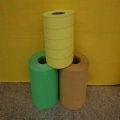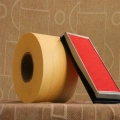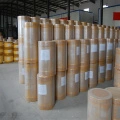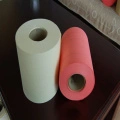
Fuel filter paper is the core filtration medium used in modern paper fuel filters and fuel filter paper elements, offering critical protection against impurities, particulates, resin, and water in petrochemical and metallurgical systems. This comprehensive guide explores manufacturing techniques, industry standards, technical trends, parameter tables, real-world cases, and strategic vendor comparisons—backed by data and visualized analytics.
The fuel filter paper market is projected to grow at a CAGR of 5.2% from 2023 to 2029,[1] owing to the surging adoption in automotive, petrochemical, hydraulic, and metallurgical industries. The increasing demand for cleaner fuel, tighter emission controls, and advanced engine protection are key market drivers.
According to IHS Markit, over 2.9 billion fuel filters using paper media were consumed in the auto industry in 2022, with 73% of these filters using advanced cellulose or synthetic composite filter papers.

Fuel filter paper is a specialty porous medium engineered from high-purity cellulose fiber, synthetic fiber, or their composites, exhibiting high porosity, specific fiber density, and multi-layered structures. Its primary functions include particle entrapment, water separation, chemical corrosion resistance, and long-term endurance across various refinery and engine fuel systems.
- Synonym: Fuel filter paper element, filter media for paper fuel filters
- Typical applications: Automotive, petrochemical, off-road machinery, aviation, hydraulics
- Key attributes: Efficiency (99.5% at 5–10μm), bursting strength, chemical stability, pleatability

High-purity cellulose/synthetic blend
Fiber dispersion, resin addition
Wet-laid web, forming mesh
Phenolic, epoxy, or melamine resin
Heated tunnels, roll press
Computerized CNC sizing
ISO/ANSI/SAE test as per order
Material Technology:
Leading fuel filter paper manufacturers employ advanced double-layer composite structures, CNC slitting, and high-speed curing technology to enhance pore size uniformity, minimize fiber shedding, and maximize filter life.
Typical resin binder content: 10–25% depending on chemical compatibility, rigidity, and region.

- ISO 9001:2015
- ISO/TS 16949 (Automotive)
- SAE J905/J1985/J2360
- FDA (Food contact, select grades)
- ROHS/REACH compliance
| Parameter | Standard Value | Test Method | Industry Range | Significance |
|---|---|---|---|---|
| Nominal Thickness | 0.32–0.5 mm | ISO 4593 | 0.25–0.7 mm | Flow resistance & capacity |
| Basis Weight (GSM) | 125–160 g/m² | ISO 536 | 100–220 g/m² | Strength, pleatability |
| Pore Size (μm) | 5–20 μm | Mercury Porosimetry | 3–30 μm | Particle retention efficiency |
| Max Burst Pressure | ≥ 380 kPa | SAE J905 | 300–500 kPa | Structural reliability |
| Chemical Resistance | Excellent: gasoline, diesel, ethanol blends | ISO 29463 | Good–Excellent | Long-term stability |
| Filtration Efficiency | ≥ 99.5% @10μm | ISO 4548-12 | 98%–99.9% | Fuel system protection |
| Water Repellency | >85° (contact angle) | ASTM D724 | 70°–90° | Phase separation |
| Working Temperature | -40°C~135°C | ISO 815 | -30°C~150°C | Engine compatibility |
| Service Life | >12000h (auto) / 6000h (industry) | Field Test | 3000–15000h | Longevity |
| Brand | ISO Efficiency 10μm | Burst Pressure (kPa) | Typical Lifetime (hr) |
|---|---|---|---|
| FiltersMaterial | 99.5% | 390 | 12000 |
| Ahlstrom | 99.7% | 430 | 13500 |
| Hollingsworth | 99.3% | 385 | 11500 |
| Tokuoka (Japan) | 99.4% | 400 | 11000 |

- Automotive: OEM fuel systems, diesel/gasoline filter elements, emission reduction
- Metallurgy: Hydraulic oil purification, continuous casting line protection
- Petrochemical: Refinery pre-filtration units, bulk fuel storage/tank/pipeline
- Water Treatment: Oil-water separation, coalescence filters
- Power Generation: Turbine fuel/oil protection
Benefits:
- Precise particle retention (down to 5μm)
- Chemical/thermal aging resistance, non-leaching
- Energy savings: Reduced differential pressure by 7–15% (vs. legacy glass-fiber media)
- Client: PSA Peugeot Citroën Group
- Type: Synthetic-cellulose layered fuel filter paper element
- Results: 17% service interval extension (60k→70k km); guaranteed Euro6 particle specs
Case 2: Petrochemical Storage Facility, Middle East
- Installed: 95,000 L/h pre-filtration units | Dual-layer paper fuel filters
- Efficiency: >99.7% @ 10μm, Service life: 10,800 hr
- Impact: 21% reduction in injector fouling, regulatory compliance improved
Case 3: Steel Mill Central Hydraulic Line, Turkey
- Specification: ISO/TS16949 certified fuel filter paper
- Delta-P reduction: -8% | Filtration cost: -12% (annual)
- Feedback: “Consistent performance under severe temps; filter paper integrity outstanding.” – Maintenance Chief
Choosing the right fuel filter paper manufacturer is crucial for OEM, aftermarket, and industrial users. Consider the following criteria:
- Certification & Source: ISO/TS16949, origin–Europe/China/Japan
- Resin System: Phenolic (fuel exposure), Epoxy (rigidity), Melamine (hydrophobicity)
- Fiber Source & Blending: Japanese long-fiber cellulose vs. European high-dispersion blends vs. full synthetic
- Slitting Precision: CNC tolerance ≤0.1mm
- Supply Stability: Lead time, MOQ, multi-lot traceability
- Multiple certification (ISO, TS16949, FDA grades)
- Annual production: >20,000 tons (2023)
- Global supply to 100+ OEMs
- On-demand formulation: Pore 3–30μm, custom resin, cut width/shapes
- Lead time: 8~16 days (standard), urgent: 5 days
- Full technical support: Lab reports, reference projects
| Series | Structure | Pore Size (μm) | Main Use |
|---|---|---|---|
| Standard Cellulose | Single-layer, resin-impregnated | 8–30 | Entry-level auto, off-road |
| Composite Layered | Cellulose + Polypropylene | 5–12 | Emission-compliant engines |
| Full Synthetic | 100% Polyamide/Epoxy | 3–7 | High-temp, biofuel resistant |
| Hydrophobic | Cellulose/Synthetic, fluorinated | 10–22 | Water separation filters |
- MOQ: 500 sq.m (custom cut), 5 rolls/lot (std. size)
- Delivery: 8–16 days (standard); 5 days (expedited, surcharge may apply)
Warranty & After-Sales:
- 12–24 months standard warranty
- Root-cause analysis on failures, performance optimization advice
- Continuous technical FAQ support via email/WhatsApp/WeChat
- 3-day sample dispatch for OEM projects
Contact:
Email: sales@filtersmaterial.com
- [1] “Global Automotive Fuel Filters Market Report 2023-2029”, MarketsandMarkets, Read full report
- E. Lyckman et al., “Advanced filter paper solutions for automotive applications”, Filtration+Separation, 2023, View article
- “Technical comparison of cellulose and synthetic filter papers”, SAE Paper 2019-01-0753, Details
- International Filtration Forum – “Latest Trends in Filter Media”, Read forum highlight
- “Filtration efficiency evolution: Fuel filter paper technology (2013–2023)”, Filter Media Journal, Vol. 45
Hebei Fangyu Filter Material Technology Co.,Ltd is the leading innovative developer and manufacturer all kinds of filter materials in China.pocket filter media factory Located in the economically developed Handan Hebei specialized in various kinds of filter materials from Synthetic Media,Paint stop Filter Media Pre- filter Non Woven Fabric ,Wire Mesh Backed Laminated Filter Media,Ceiling filter Auto Cabin Filter Media, polypropylene filter media, Glass Microfiber Filter Media Nonwoven Fabric,Pre- filter non woven fabric, activated carbon filter materials, EN779 bag filter materials, HEPA filter media, air filter HEPA filter media and Filter Accessories.Our filter materials have passed ISO9001:2000 quality certification since 2005.Certified by ISO9001, UL2 and SGS, with emphasis on quality and service. Our strength is the ability to find innovative ways to meet marketplace or product requirements.activated filter media price|super blog